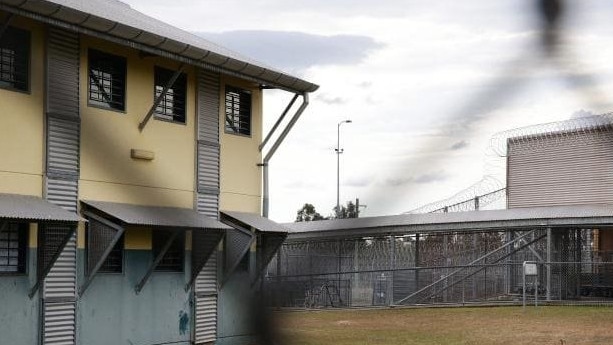Killer, jailed firebug slashes parole ban in Supreme court appeal
A ‘psychopathic’ Queensland killer, who strangled a fellow inmate to death while in jail for murdering an elderly woman, has successfully appealed terms of the order preventing him from applying for parole.

Police & Courts
Don't miss out on the headlines from Police & Courts. Followed categories will be added to My News.
A ‘psychopathic’ Queensland killer, who strangled a fellow inmate to death while in jail for murdering an elderly woman, has successfully appealed terms of the order preventing him from applying for parole.
Convicted double murderer Rodney George Anderson has claimed in a successful appeal before Brisbane’s Supreme Court that the length of his Restricted Prisoner Declaration went against his “human rights” and “right to dignity”.
Former parole board president Michael Byrne KC made the declaration in 2023, which barred Anderson from applying for parole for eight years and six months.
Anderson had murdered 77-year-old Ethel Adamson in her Moorooka home in 1995 and then attempted to set fire to her house.
Documents from a dismissed appeal in 1998 reveal how Ms Adamson had been found dead in her bedroom after being “viciously assaulted”.
The murder was later described by Judge Byrne as “prolonged and extraordinarily violent”.
While still serving his life sentence in 2000, Anderson murdered a fellow inmate by strangling him with a TV aerial cord.
Judge Byrne noted, in his original decision to make the declaration, that Anderson claimed he had done so “because the victim was ‘irritating’ those around them”.
“The psychiatric evidence … demonstrated that the prisoner had a psychopathic personality with poor impulse control and demonstrated high levels of aggression,” Judge Byrne said.
Judge Byrne further noted Anderson had an “established history of fire-setting” – with three arson-related convictions beginning before the first murder.

Anderson had also expressed to a psychiatrist and others that he “could not help the urge to set fire to things,” Judge Byrne said.
Anderson, now in his 70s, originally became eligible for parole on November 8, 2020 – 20 years after he was sentenced for the second murder.
But following the Restricted Prisoner Declaration, Anderson was barred from applying for parole until December 6, 2031.
Justice Rebecca Treston noted in an appeal decision handed down on Friday that Anderson would be 78 by then.
Anderson did not attempt to overturn the declaration itself, just the length it had been imposed for, she noted.
His solicitors submitted that the declaration’s length had failed to take into account his specific medical circumstances.
Justice Treston said Anderson required a wheelchair and suffered from a number of medical conditions including a benign tumour at the base of his brain, type-2 diabetes, epilepsy, chronic kidney disease, hypertension, and central hypothyroidism.
A senior medical officer from Wolston Medical Centre had found that Anderson’s symptoms required “further investigation, monitoring, and specialist input,” she noted.
“None of his conditions are immediately life threatening, however, he is at risk of acute deterioration due to his underlying health issues,” the officer said.
“ … The patient’s needs are likely to become more difficult to meet in the corrective environment and his care may be more appropriately managed in a supported community or nursing home setting.”
But Justice Treston noted Anderson’s psychiatrist had raised concerns that he had shown no “appreciable change” in his attitude towards violence or his capacity to take responsibility for his actions.

“Despite his advancing age, (Anderson) continues to engage in aggressive, antiauthoritarian behaviour and has been accused of sexually assaulting other inmates,” the psychiatrist said.
Justice Treston said Judge Byrne had considered Anderson’s medical history when making the original declaration.
“I am satisfied that there is a risk the prisoner may pose to the public if he is granted parole, particularly as the prisoner is a psychopath and a pyromaniac who continues to pose a moderately high risk of violent recidivism despite his advancing age and noted health issues,” she quoted Judge Byrne.
“The President seemed rightly concerned with the risk of releasing a pyromaniac into an aged care home where vulnerable people might be at significant risk from his actions,” Justice Treston commented.
“But the reasons did not descend into any consideration as to the term of the declaration … or the way in which the decline in the applicant’s health, if any, would be managed in prison.”
Justice Treston said the eight-and-a-half-year term seemed “without explanation”, and found it to therefore be an error of law.
“I find that the period imposed under the Restricted Prisoner Declaration of 23 June 2023 is invalid and should be set aside.”
The parties will be heard at a later date about an appropriate new term for the order.


